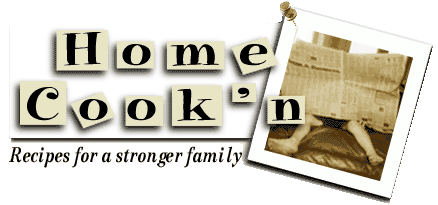Just because we have turned to eating low fat foods does not mean we should give up fats completely. That would be virtually impossible. However, it is important to know the facts about fats. Even though all fats have the same amount of calories, not all fats are created equal.
We need fat in our diet –like heart healthy fats. Fat provides linoleic acid, an essential fatty acid for growth, healthy skin and metabolism. It also helps absorb fat-soluble vitamins (A,D,E and K). And, face it, fat adds flavor and is satisfying, making us feel fuller, keeping hunger at bay. So choose your fats wisely. You can do this by reading the nutrition labels and ingredient lists on the products you buy. The fats that you want to avoid as much as possible are saturated fats and trans fats.
The following definitions of fats are from the article Sorting out the Fats by Fiona Hayes.
Saturated fats are derived from animal products such as meat, dairy and eggs. But they are also found in some plant-based sources such as coconut, palm and palm kernel oils. These fats are solid at room temperature. Saturated fats clog our arteries and directly raise total and LDL (bad) cholesterol levels. Avoid them as much as possible.
Trans fats are actually unsaturated fats, but they can raise total and LDL (bad) cholesterol levels while also lowering HDL (good) cholesterol levels. Trans fats are used to extend the shelf life of processed foods, typically cookies, cakes, fries and donuts. Any item that contains “hydrogenated oil” or “partially hydrogenated oil” likely contains trans fats. Hydrogenation is the chemical process that changes liquid oils into solid fats. The tide is turning against trans fats. All food manufacturers will be required to list trans fat content on the food label by 2006. Some are already doing so.
Unsaturated fats Monounsaturated fats and polyunsaturated fats are two types of unsaturated fatty acids. They are derived from vegetables and plants.
- Monounsaturated fats are liquid at room temperature but begin to solidify at cold temperatures. This type of fat is preferable to other types of fat and can be found in olives, olive oil, nuts, peanut oil, canola oil and avocados. Some studies have shown that these kinds of fats can actually lower LDL (bad) cholesterol and maintain HDL (good) cholesterol.
- Polyunsaturated fats are also liquid at room temperature. These are found in safflower, sesame, corn, cottonseed and soybean oils. This type of fat has also been shown to reduce levels of LDL cholesterol, but too much can also lower your HDL cholesterol.
Omega-3 fatty acids These are “essential” fatty acids which means they are considered critical for our health but cannot be manufactured by our bodies. Good sources include cold-water fish, flax seed, soy, and walnuts. These fatty acids may reduce the risk of coronary heart disease and also boost our immune systems.
Cholesterol Types: According to the American Heart Association
LDL Cholesterol: When too much LDL, low-density lipoproteins, cholesterol circulates in the blood, it can slowly build up in the inner walls of the arteries that feed the heart and brain. Together with other substances it can form plaque, a thick, hard deposit that can clog those arteries. If a clot forms and blocks a narrowed artery, it can cause a heart attack or stroke.

HDL Cholesterol: About one-third to one-fourth of blood cholesterol is carried by high-density lipoprotein (HDL). HDL cholesterol is known as the "good" cholesterol because a high level of it seems to protect against heart attack. (Low HDL cholesterol levels [less than 40 mg/dL] increase the risk for heart disease.) Medical experts think that HDL tends to carry cholesterol away from the arteries and back to the liver, where it's passed from the body. Some experts believe that HDL removes excess cholesterol from plaque in arteries, thus slowing the buildup.
The Fat Break Down Chart
Name |
What it Does |
Where it is Found |
Saturated Fats |
Clog our arteries and directly raise total LDL (bad) cholesterol levels. |
Animal products such as meat, dairy, and eggs. Also in coconut, palm, and palm kernel oils. |
Trans Fats |
Can raise total and LDL (bad) cholesterol levels while also lowering HDL (good) cholesterol levels. --- a double whammy! |
Processed foods such as cookies, cakes, fries, and donuts. Any item that contains “partially hydrogenated oil” likely has trans fat. |
Monounsaturated fats |
Preferable to other types of fat. Have been shown to lower LDL (bad) levels and maintain HDL (good). |
Olives, olive oil, nuts, peanut oil, and avocados. |
Polyunsaturated fats |
Has been shown to reduce levels of LDL (bad), but too much can lower your HDL (good) levels. |
Found in safflower, sesame, corn, cottonseed, and soybean oils. |
Omega-3 fatty acids |
Essential fatty acids, considered critical for our health. |
Found in cold water fish, flax seed, soy, and walnuts. |
After reading about the different kinds of fat, I went to my pantry to see what exactly I was feeding my family. I decided to try to get rid of anything that said “partially hydrogenated.” This fat sounds like the worst one since it raises LDL levels and lowers HDL levels. I was surprised to see that it was in the tortillas and refried beans that I have used for years, it was in my peanut butter, and even a bag of dinner rolls.
* DVO welcomes your kitchen hints and cooking or nutrition questions! Email us and we'll post your hints and Q/A's in upcoming newsletters! *
|













